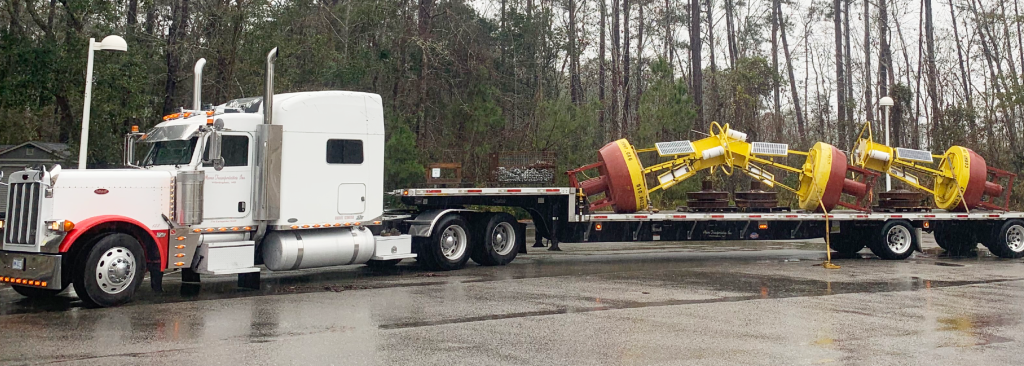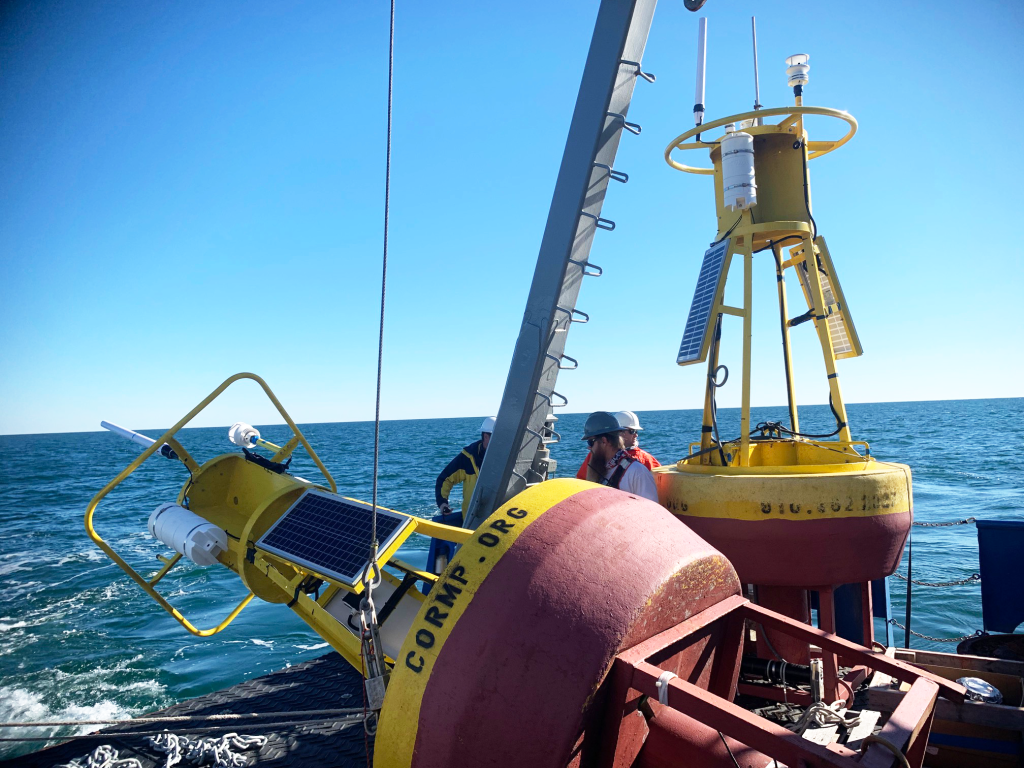In early February, the University of North Carolina Wilmington’s Coastal Ocean Research and Monitoring Program (UNCW CORMP) replaced buoys off the coasts of North Carolina and South Carolina. These buoys provide real-time weather, sea state, and water quality data for use by the public, as well as the scientific and public safety communities.
The team went to sea on the RV Savannah and swapped the FRP2, CAP2, SUN2 and SUN2wave buoys for new moorings. For each deployed mooring, CORMP has a spare mooring at UNCW. This allows the CORMP technicians to swap out deployed buoys after they have spent a year at sea, ensuring continued accurate measurements.
Replacement of the CAP2 buoy was much needed. It has been inoperable since early January due to power and communications failures. The CAP2 buoy has a brand new Seabird SIP-37 conductivity, temperature, and depth (CTD) sensor. The new sensor is connected to the power system on the buoy instead of using a battery pack. This should eliminate the issue of power loss while the CTD is deployed.
In the near future, the team is planning to deploy a new wave buoy at the CAP2 site. This will be the first near-shore wave buoy on the South Carolina coast. It will provide real-time data for mariners and forecasters and archived data will be useful for ocean modelers and coastal geologists.
Thank you to the crew of the RV Savannah and Eric Glidden of the UNCW Underwater Vehicles Program for their help with the deployments.
Images credited to UNCW CORMP
Related news
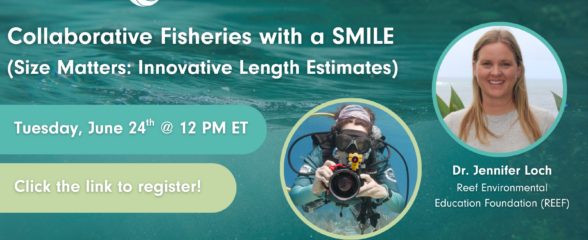
SECOORA Webinar: Collaborative Fisheries with a SMILE (Size Matters: Innovative Length Estimates)
On Tuesday, June 24th at 12 PM ET, Dr. Jennifer Loch from Reef Environmental Education Foundation (REEF) will discuss the SMILE (Size Matters: Innovative Length Estimates) project as part of SECOORA's Coastal Observing in Your Community Webinar Series.
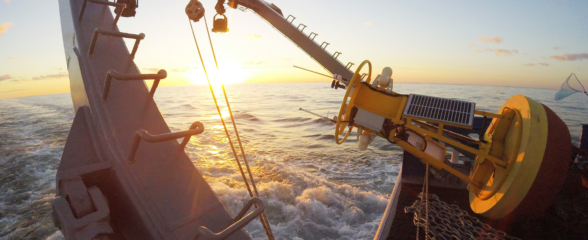
Funding Cuts to NOAA IOOS Will Hurt the Southeast
Proposed federal funding cuts would eliminate the IOOS Regional Observations budget for next year. Contrary to the budget Congress has already approved for this year, the Executive Branch wants these proposed cuts to go into effect in 2025.
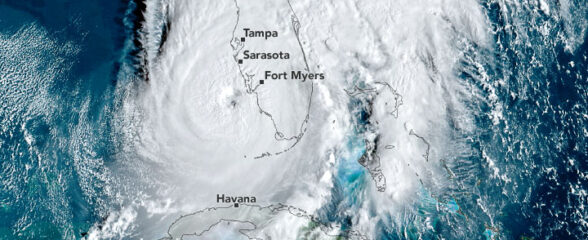
SECOORA Webinar on the Rapid Intensification of Hurricane Ian: Warm Subsurface Water on the Wide Continental Shelf
Join us Thursday, April 24th at 12 PM ET for the April installment of the SECOORA Coastal Observing in Your Community Webinar Series! This month, we will hear from Dr. Yonggang Liu from the University of South Florida. He will discuss his research on the rapid intensification of Hurricane Ian in relation to anomalously warm subsurface water on the wide...
